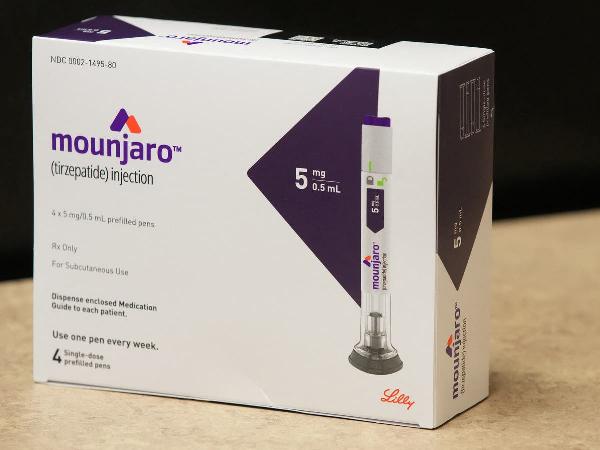Which STDs Spread Through Skin Contact?

Strong 8k brings an ultra-HD IPTV experience to your living room and your pocket.
Sexually transmitted diseases (STDs) are infections that spread through various forms of sexual contact, including skin-to-skin contact. While some STDs are transmitted through bodily fluids such as semen or vaginal secretions, others can be spread through direct skin contact. Understanding how these diseases are transmitted is crucial in preventing them. This article explores the STDs in Dubai that can spread through skin contact, focusing on the doctors' treatment approaches to managing these infections.
What Are STDs That Spread Through Skin Contact?
STDs that spread through skin contact are infections that can be transmitted even without the exchange of bodily fluids. These diseases are often passed through physical touch, such as genital contact, oral contact, or skin-to-skin interactions. Certain STDs, like herpes and human papillomavirus (HPV), are primarily spread through such contact.
Common STDs Transmitted by Skin Contact
Herpes Simplex Virus (HSV)
Herpes is one of the most common viral STDs spread through skin contact. It is caused by the herpes simplex virus (HSV), which can be categorized into two types: HSV-1 (typically associated with oral herpes) and HSV-2 (associated with genital herpes). Both types of herpes can spread even when there are no visible symptoms, making it easy for individuals to unknowingly transmit the virus.
Human Papillomavirus (HPV)
HPV is a group of viruses that can spread through skin-to-skin contact, particularly through genital contact. It is the most common sexually transmitted infection globally and can lead to genital warts or even more severe complications like cervical cancer. While HPV infection can occur without visible symptoms, the virus can be transmitted to a partner through skin contact during sexual activity.
Syphilis
Syphilis is a bacterial infection that can spread through direct contact with syphilis sores during vaginal, anal, or oral sex. The infection starts as a painless sore, which can occur on the genital, anal, or mouth area. If these sores come into contact with another person's skin, they can spread the bacteria. The disease can progress through stages if left untreated, making early detection and treatment critical.
Molluscum Contagiosum
Molluscum contagiosum is a viral infection that results in raised, waxy bumps on the skin. While it is not strictly classified as an STD, it can be spread through skin-to-skin contact during sexual activity. The virus is most contagious when these bumps are present, and it can spread from one person to another through direct touch or even sharing personal items like towels.
Scabies
Scabies is a skin condition caused by the infestation of tiny mites that burrow into the skin. While it is not always considered an STD, it can spread through skin-to-skin contact, including sexual activity. The mites cause intense itching and rashes. Scabies can be easily passed from person to person through prolonged physical contact, especially in the genital area.
Doctor’s Approach to Treatment for STDs Spread by Skin Contact
Diagnosis
When a patient presents with symptoms of an STD that spreads through skin contact, a healthcare provider begins by conducting a thorough physical examination. For conditions like herpes, HPV, and syphilis, doctors look for visible sores, rashes, or warts. In cases where symptoms are not visible, diagnostic tests, such as blood tests, swabs, or skin scrapings, may be used to confirm the presence of an infection.
Herpes Treatment
While there is no cure for herpes, doctors can help manage the infection with antiviral medications. These medications, such as acyclovir or valacyclovir, can help reduce the severity and frequency of outbreaks, making it easier for individuals to manage their condition. Patients are advised to avoid sexual contact during outbreaks and to practice safe sex when the virus is not active.
HPV Treatment
There is no specific cure for HPV, but certain strains can be managed. Doctors focus on treating the symptoms, such as genital warts, with topical treatments or cryotherapy (freezing the warts). In cases where HPV leads to precancerous changes in the cervix, doctors may perform procedures like colposcopy or loop electrosurgical excision to remove abnormal tissue.
Syphilis Treatment
Syphilis is easily treatable with antibiotics, usually penicillin. Early stages of syphilis can be cured with a single injection of penicillin. However, if left untreated, syphilis can progress to more severe stages, causing complications like organ damage. Therefore, early diagnosis and treatment are critical to prevent the infection from spreading.
Molluscum Contagiosum Treatment
Molluscum contagiosum typically resolves on its own within a few months. However, if the bumps cause discomfort or spread extensively, doctors may suggest treatments such as cryotherapy, laser therapy, or topical medications to remove the lesions. It's important for patients to avoid scratching or picking the bumps to prevent further spread.
Scabies Treatment
Scabies is treatable with topical medications, such as permethrin cream, which is applied to the skin to kill the mites. In some cases, oral medications like ivermectin may be prescribed for more severe infestations. Since scabies is highly contagious, it’s important for individuals to inform sexual partners and close contacts so they can also receive treatment.
Prevention Strategies
Preventing the spread of STDs that are transmitted through skin contact relies on several key strategies:
Consistent use of condoms: While condoms don’t completely eliminate the risk, they can reduce the likelihood of transmitting these infections during sexual contact.
Regular screening: Regular testing for STDs, especially for individuals who are sexually active with multiple partners, helps detect infections early and prevent further spread.
Avoiding contact during outbreaks: People with visible herpes sores or genital warts should avoid sexual contact until the symptoms are fully healed.
Benefits of Early Diagnosis and Treatment
Early diagnosis and treatment offer several benefits for individuals with STDs that spread through skin contact. First, it helps prevent the infection from spreading to others. Second, it can reduce the severity of symptoms, preventing long-term complications. Finally, early intervention can help reduce the risk of other sexually transmitted infections and maintain overall sexual health.
FAQs
What STDs can be transmitted through skin contact?
Herpes, HPV, syphilis, molluscum contagiosum, and scabies can be spread through skin-to-skin contact during sexual activity.
Can you get herpes if there are no visible sores?
Yes, herpes can be transmitted even if there are no visible sores, as the virus can be shed from the skin.
Is there a cure for HPV?
There is no cure for HPV, but treatments are available for managing symptoms like genital warts. In some cases, the virus may clear on its own.
How is syphilis treated?
Syphilis is treated with antibiotics, typically penicillin, which cures the infection if administered early.
Can molluscum contagiosum be treated?
Yes, molluscum contagiosum can be treated with cryotherapy, laser therapy, or topical medications to remove the lesions.
Conclusion
Understanding which STDs spread through skin contact is crucial for both prevention and treatment. While some of these infections can be managed effectively with the help of a healthcare provider, early diagnosis and proper treatment are essential for reducing the risk of complications. Practicing safe sex, regular screening, and avoiding skin contact during outbreaks are vital in preventing the transmission of these STDs.
Note: IndiBlogHub features both user-submitted and editorial content. We do not verify third-party contributions. Read our Disclaimer and Privacy Policyfor details.







